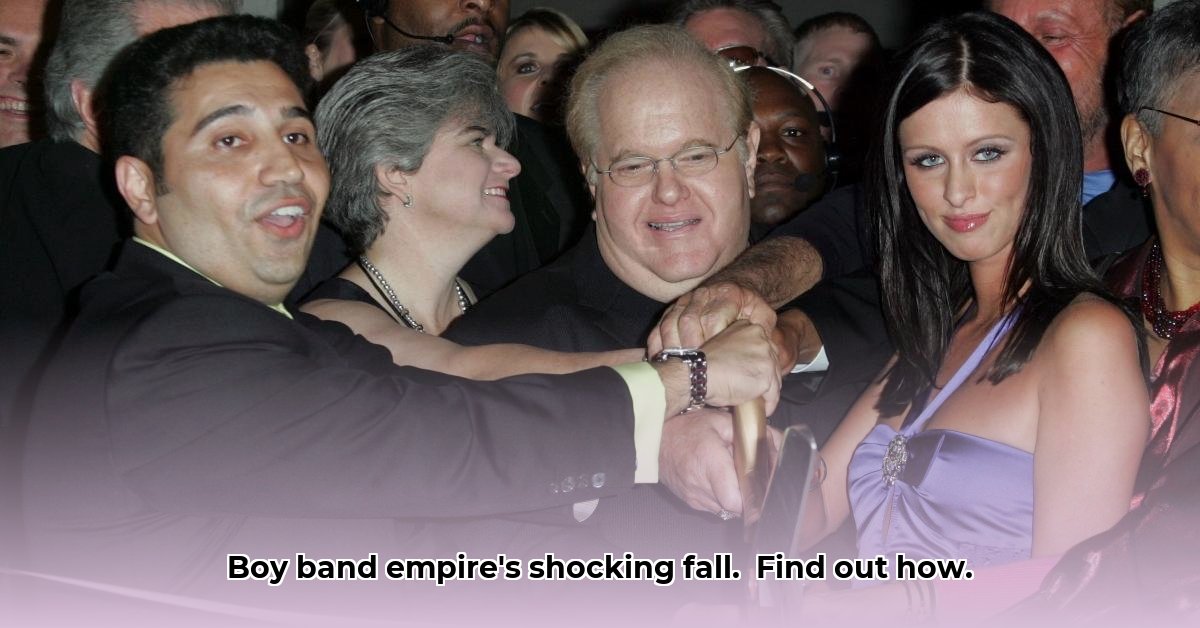
The name Lou Pearlman conjures images of chart-topping boy bands, sold-out stadiums, and a seemingly limitless fortune. But behind the glittering façade of his music empire lay a dark secret: a massive Ponzi scheme that defrauded investors and exploited countless young musicians. This article delves into the mechanics of Pearlman's fraud, explores the human cost of his actions, and examines the lessons learned from this cautionary tale.
The Rise and Fall of a Boy Band Mogul
In the late 1980s and early 1990s, Lou Pearlman transformed into a seemingly overnight sensation. He launched the careers of global pop icons like the Backstreet Boys and NSYNC, seemingly possessing an uncanny ability to identify and cultivate musical talent. His lavish lifestyle—private jets, sprawling mansions—fueled the perception of immense wealth, attracting investors eager to tap into his purported success. However, this apparent fortune was meticulously constructed through a complex and devastating Ponzi scheme. Did anyone suspect the fragility of this seemingly invincible empire? The answer, unfortunately, is a resounding yes, from several key players. The reality, however, was far more complicated.
The Illusion of Success: Deconstructing the Ponzi Scheme
Pearlman's scheme was deceptively simple yet brutally effective. He lured investors with promises of extraordinary returns, using funds from new investors to pay off earlier ones. This created a cycle of false profits, maintaining the illusion of a thriving business. His deceptive accounting practices and falsified financial statements further solidified this deception, attracting even more investors to his web of deceit. This wasn't just about money; it was about meticulously crafting a narrative of unprecedented success, playing on investors' hopes of rapid riches.
The Mechanisms of Deception
Pearlman’s deception involved several key elements:
- High-yield promises with minimal risk: He sold the dream of outsized returns with virtually no downside, an irresistible lure for many investors.
- Sophisticated accounting practices: His obfuscated financial statements masked the Ponzi scheme's true nature, making it difficult for outsiders to detect the fraud.
- Exploitation of trust: He skillfully built relationships with aspiring artists and investors, fostering an atmosphere of trust and exclusivity.
- Reinforcing the narrative: His lavish lifestyle constantly reinforced his image as a successful entrepreneur, fueling investors’ belief in the scheme’s profitability.
The Human Toll: Victims of Pearlman's Greed
The devastation caused by Pearlman's actions extended far beyond the financial realm. Countless investors lost their life savings, while the musicians signed to his record labels endured exploitative contracts and broken promises. Many promising young artists entered into disadvantageous agreements, their dreams overshadowed by the reality of unfair terms and exploitative management tactics. The emotional and psychological toll on these young men was significant, their careers damaged by the unraveling of their mentor’s empire. This underscored the human tragedy behind this massive financial crime.
The Aftermath: Legal Reckoning and Lasting Impact
In 2008, Pearlman was convicted on multiple counts of fraud and sentenced to 25 years in prison. While this brought a measure of justice to his victims, it did little to alleviate the lasting financial and emotional damage. The legal battles continued for years, highlighting the complex process of recovering losses and rebuilding lives after such a devastating betrayal. The collapse of Pearlman’s empire served as a landmark case, underscoring the need for stricter regulations and increased scrutiny within the music industry and financial world.
Lessons Learned and Future Safeguards
The Pearlman case offers several crucial lessons:
- The importance of due diligence: Thorough research and independent verification are essential before any significant investment.
- The dangers of unrealistic returns: Promises of unusually high returns with minimal risk are a major red flag.
- The need for transparency: Open and honest financial reporting is crucial for maintaining trust and preventing fraud.
- Strengthening industry regulations: More robust regulatory oversight and stricter enforcement are vital to protecting both investors and artists.
This case underscores the importance of skepticism, financial literacy, and the vital need for robust regulatory frameworks to protect vulnerable investors and artists from exploitative practices. The illusion of Lou Pearlman’s immense net worth ultimately crumbled, leaving behind a legacy of caution and a renewed focus on the ethical standards in both the financial and entertainment industries.